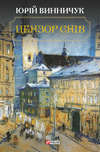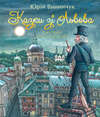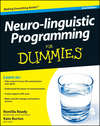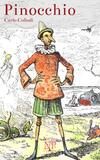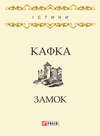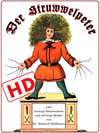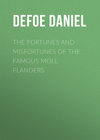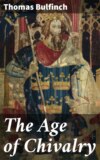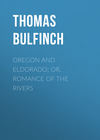Kitabı oku: «The Classic Myths in English Literature and in Art (2nd ed.) (1911)», sayfa 26
278. The Death of Balder. Balder the Good, having been tormented with terrible dreams indicating that his life was in peril, told them to the assembled gods, who resolved to conjure all things to avert from him the threatened danger. Then Frigga, the wife of Odin, exacted an oath from fire and water, from iron and all other metals, from stones, trees, diseases, beasts, birds, poisons, and creeping things, that none of them would do any harm to Balder. Odin, not satisfied with all this, and feeling alarmed for the fate of his son, determined to consult the prophetess Angerbode, a giantess, mother of Fenris, Hela, and the Midgard serpent. She was dead, and Odin was forced to seek her in Hela's dominions.
But the other gods, feeling that what Frigga had done was quite sufficient, amused themselves with using Balder as a mark, some hurling darts at him, some stones, while others hewed at him with their swords and battle-axes, for do what they would, none of them could harm him. And this became a favorite pastime with them, and was regarded as an honor shown to Balder. But when Loki beheld the scene, he was sorely vexed that Balder was not hurt. Assuming, therefore, the shape of a woman, he went to Fensalir, the mansion of Frigga. That goddess, when she saw the pretended woman, inquired of her if she knew what the gods were doing at their meetings. She replied that they were throwing darts and stones at Balder, without being able to hurt him. "Ay," said Frigga, "neither stones, nor sticks, nor anything else can hurt Balder, for I have exacted an oath from all of them." "What," exclaimed the woman, "have all things sworn to spare Balder?" "All things," replied Frigga, "except one little shrub that grows on the eastern side of Valhalla and is called Mistletoe, which I thought too young and feeble to crave an oath from."
As soon as Loki heard this he went away and, resuming his natural shape, cut off the mistletoe and repaired to the place where the gods were assembled. There he found Höder standing apart, without partaking of the sports on account of his blindness, and going up to him said, "Why dost thou not also throw something at Balder?"
"Because I am blind," answered Höder, "and see not where Balder is, and have, moreover, nothing to throw."
"Come, then," said Loki, "do like the rest and show honor to Balder by throwing this twig at him, and I will direct thy arm toward the place where he stands."
Höder then took the mistletoe and, under the guidance of Loki, darted it at Balder, who, pierced through and through, fell down lifeless. Never was there witnessed, either among gods or men, a more atrocious deed.
So on the floor lay Balder dead; and round366
Lay thickly strewn swords, axes, darts, and spears,
Which all the gods in sport had idly thrown
At Balder, whom no weapon pierced or clove;
But in his breast stood fixt the fatal bough
Of mistletoe, which Lok the accuser gave
To Höder, and unwitting Höder threw —
'Gainst that alone had Balder's life no charm.
And all the gods and all the heroes came,
And stood round Balder on the bloody floor,
Weeping and wailing; and Valhalla rang
Up to its golden roof with sobs and cries;
And on the tables stood the untasted meats,
And in the horns and gold-rimmed skulls the wine.
And now would night have fall'n and found them yet
Wailing; but otherwise was Odin's will.
He bade them not to spend themselves in unavailing grief, for Balder, though the brightest god of heaven and best beloved, had but met the doom ordained at his birth by the Norns. Rather let the funeral pile be prepared, and let vengeance on Loki be left to Odin himself. So speaking, Odin mounted his horse Sleipnir and rode away to Lidskialf, and the gods in Valhalla returned to the feast:
And before each the cooks, who served them, placed
New messes of the boar Serimnir's flesh,
And the Valkyries crowned their horns with mead.
So they, with pent-up hearts and tearless eyes,
Wailing no more, in silence ate and drank,
While twilight fell, and sacred night came on.
But the blind Höder, leaving the gods, went by the sea to Fensalir, the house of Frigga, mother of the gods, to ask her what way there might be of restoring Balder to life and heaven. Might Hela perchance surrender Balder if Höder himself should take his place among the shades? "Nay," replied Frigga, "no way is there but one, that the first god thou meetest on the return to Asgard take Sleipnir, Odin's horse, and ride o'er the bridge Bifrost where is Heimdall's watch, past Midgard fortress, down the dark, unknown road to Hel, and there entreat the goddess Hela that she yield Balder back to heaven." Höder, returning cityward, met Hermod, swiftest of the gods, —
Nor yet could Hermod see his brother's face,
For it grew dark; but Höder touched his arm.
And as a spray of honeysuckle flowers
Brushes across a tired traveler's face
Who shuffles through the deep dew-moisten'd dust
On a May evening, in the darken'd lanes,
And starts him, that he thinks a ghost went by,
So Höder brush'd by Hermod's side, and said:
"Take Sleipnir, Hermod, and set forth with dawn
To Hela's kingdom, to ask Balder back;
And they shall be thy guides who have the power."
He spake, and brush'd soft by and disappear'd.
And Hermod gazed into the night, and said:
"Who is it utters through the dark his hest
So quickly, and will wait for no reply?
The voice was like the unhappy Höder's voice.
Howbeit I will see, and do his hest;
For there rang note divine in that command."
So speaking, the fleet-footed Hermod came
Home, and lay down to sleep in his own house;
And all the gods lay down in their own homes.
And Höder, too, came home distraught with grief,
Loathing to meet, at dawn, the other gods;
And he went in, and shut the door, and fixt
His sword upright, and fell on it, and died.
But from the hill of Lidskialf Odin rose,
The throne, from which his eye surveys the world;
And mounted Sleipnir, and in darkness rode
To Asgard. And the stars came out in heaven,
High over Asgard, to light home the king.
But fiercely Odin gallop'd, moved in heart:
And swift to Asgard, to the gate he came,
And terribly the hoofs of Sleipnir rang
Along the flinty floor of Asgard streets,
And the gods trembled on their golden beds
Hearing the wrathful father coming home —
For dread, for like a whirlwind Odin came.
And to Valhalla's gate he rode, and left
Sleipnir; and Sleipnir went to his own stall,
And in Valhalla Odin laid him down.
That night in a vision appeared Balder to Nanna his wife, comforting her:
"Yes, and I fain would altogether ward
Death from thy head, and with the gods in heaven
Prolong thy life, though not by thee desired —
But right bars this, not only thy desire.
Yet dreary, Nanna, is the life they lead
In that dim world, in Hela's moldering realm;
And doleful are the ghosts, the troops of dead,
Whom Hela with austere control presides.
For of the race of gods is no one there
Save me alone, and Hela, solemn queen;
For all the nobler souls of mortal men
On battle field have met their death, and now
Feast in Valhalla, in my father's hall;
Only the inglorious sort are there below —
The old, the cowards, and the weak are there,
Men spent by sickness, or obscure decay.
But even there, O Nanna, we might find
Some solace in each other's look and speech,
Wandering together through that gloomy world,
And talking of the life we led in heaven,
While we yet lived, among the other gods."
He spake, and straight his lineaments began
To fade; and Nanna in her sleep stretch'd out
Her arms towards him with a cry, but he
Mournfully shook his head and disappear'd.
And as the woodman sees a little smoke
Hang in the air, afield, and disappear,
So Balder faded in the night away.
And Nanna on her bed sank back; but then
Frea, the mother of the gods, with stroke
Painless and swift, set free her airy soul,
Which took, on Balder's track, the way below;
And instantly the sacred morn appear'd.
With the morn Hermod, mounting Sleipnir, set out on his mission. For the space of nine days and as many nights he rode through deep glens so dark that he could not discern anything, until he arrived at the river Gyoll, which he passed over on a bridge covered with glittering gold. The maiden who kept the bridge asked him his name and lineage, telling him that the day before five bands of dead persons had ridden over the bridge, and did not shake it as much as he alone. "But," she added, "thou hast not death's hue on thee; why then ridest thou here on the way to Hel?"
"I ride to Hel," answered Hermod, "to seek Balder. Hast thou perchance seen him pass this way?"
She replied, "Balder hath ridden over Gyoll's bridge, and yonder lieth the way he took to the abodes of death."
Hermod pursued his journey until he came to the barred gates of Hel. Here he alighted, girthed his saddle tighter, and remounting clapped both spurs to his horse, which cleared the gate by a tremendous leap without touching it. Hermod then rode on to the palace, where he found his brother Balder occupying the most distinguished seat in the hall, and passed the night in his company. The next morning he besought Hela to let Balder ride home with him, assuring her that nothing but lamentations were to be heard among the gods. Hela answered that it should now be tried whether Balder was so beloved as he was said to be. "If, therefore," she added, "all things in the world, both living and lifeless, weep for him, then shall he return to life; but if any one thing speak against him or refuse to weep, he shall be kept in Hel."
Hermod then rode back to Asgard and gave an account of all he had heard and witnessed.
The gods upon this dispatched messengers throughout the world to beg everything to weep in order that Balder might be delivered from Hel. All things very willingly complied with this request, both men and every other living being, as well as earths, and stones, and trees, and metals, just as we have all seen these things weep when they are brought from a cold place into a hot one.
Then the messengers returned, —
… And they rode home together, through the wood
Of Jarnvid, which to east of Midgard lies
Bordering the giants, where the trees are iron;
There in the wood before a cave they came,
Where sate in the cave's mouth a skinny hag,
Toothless and old; she gibes the passers-by.
Thok is she called, but now Lok wore her shape;
She greeted them the first, and laughed and said:
"Ye gods, good lack, is it so dull in heaven
That ye come pleasuring to Thok's iron wood?
Lovers of change, ye are, fastidious sprites.
Look, as in some boor's yard, a sweet-breath'd cow,
Whose manger is stuffed full of good fresh hay,
Snuffs at it daintily, and stoops her head
To chew the straw, her litter at her feet —
So ye grow squeamish, gods, and sniff at heaven!"
She spake, but Hermod answered her and said,
"Thok, not for gibes we come; we come for tears.
Balder is dead, and Hela holds her prey,
But will restore, if all things give him tears.
Begrudge not thine! to all was Balder dear."
Then, with a louder laugh, the hag replied:
"Is Balder dead? and do ye come for tears?
Thok with dry eyes will weep o'er Balder's pyre.
Weep him all other things, if weep they will —
I weep him not! let Hela keep her prey."
She spake, and to the cavern's depth she fled,
Mocking; and Hermod knew their toil was vain.367
So was Balder prevented from returning to Asgard.
279. The Funeral of Balder. The gods took up the dead body and bore it to the seashore, where stood Balder's ship Hringham, which passed for the largest in the world. Balder's dead body was put on the funeral pile, on board the ship; and the body of Nanna was burned on the same pile with her husband's. There was a vast concourse of various kinds of people at Balder's obsequies. First came Odin accompanied by Frigga, the Valkyries, and his ravens; then Freyr in his car drawn by Gullinbursti, the boar; Heimdall rode his horse Gulltopp, and Freya drove in her chariot drawn by cats. There were also a great many Frost giants and giants of the mountain present. Balder's horse was led to the pile fully caparisoned, and was consumed in the same flames with his master.

Fig. 187. Loki and Siguna
From the painting by Gebhardt
But Loki did not escape his merited punishment. When he saw how wroth the gods were, he fled to the mountain and there built himself a hut with four doors, so that he could see every approaching danger. He invented a net to catch the fishes, such as fishermen have used since his time. But Odin found out his hiding place and the gods assembled to take him. He, seeing this, changed himself into a salmon and lay hid among the stones of the brook. But the gods took his net and dragged the brook, and Loki, finding he must be caught, tried to leap over the net; but Thor caught him by the tail, and compressed it so that salmon ever since have had that part remarkably fine and thin. They bound him with chains and suspended a serpent over his head, whose venom falls upon his face drop by drop. His wife, Siguna, sits by his side and catches the drops as they fall, in a cup; but when she carries it away to empty it, the venom falls upon Loki, which makes him howl with horror and writhe so that the whole earth shakes.
280. The Elves. The Edda mentions another class of beings, inferior to the gods, but still possessed of great power; these were the Elves. The white spirits, or Elves of Light, were exceedingly fair, more brilliant than the sun, and clad in garments of a delicate and transparent texture. They loved the light, were kindly disposed to mankind, and generally appeared as fair and lovely children. Their country was called Elfheim, and was the domain of Freyr, in whose sunlight they always sported.
The black elves, ugly, long-nosed dwarfs, of a dirty brown color, appeared only at night. They avoided the sun as their most deadly enemy, because his beams changed them immediately into stones. Their language was the echo of solitudes, and their dwelling places subterranean caves and clefts. They were supposed to have come into existence as maggots produced by the decaying flesh of Ymir's body. They were afterwards endowed by the gods with a human form and great understanding. They were particularly distinguished for a knowledge of the mysterious powers of nature, and for the runes which they carved and explained. They were the most skillful artificers of all created beings, and worked in metals and in wood. Among their most noted works were Thor's hammer, and the ship Skidbladnir, which they gave to Freyr. This vessel was so large that it could contain all the deities with their war and household implements, but so skillfully was it wrought that when folded together it could be put into a side pocket.
281. Ragnarok. It was a firm belief of the Northern nations that a time would come when all the visible creation, the gods of Valhalla and Niflheim, the inhabitants of Jötunheim, Elfheim, and Midgard, together with their habitations, would be destroyed. The fearful day of destruction will not however be without warning. First will come a triple winter, during which snow will fall from the four corners of the heavens, the frost be severe, the wind piercing, the weather tempestuous, and the sun impart no gladness. Three such winters will pass without being tempered by a single summer. Three other like winters will follow, during which war and discord will spread over the universe. The earth itself will be afraid and begin to tremble, the sea leave its basin, the heavens tear asunder; men will perish in great numbers, and the eagles of the air feast upon their still quivering bodies. The wolf Fenris will now break his bands, the Midgard serpent rise out of his bed in the sea, and Loki, released from his bonds, will join the enemies of the gods. Amidst the general devastation the sons of Muspelheim will rush forth under their leader Surter, before and behind whom are flames and burning fire. Onward they ride over Bifrost, the rainbow bridge, which breaks under the horses' hoofs. But they, disregarding its fall, direct their course to the battle field called Vigrid. Thither also repair the wolf Fenris, the Midgard serpent, Loki, with all the followers of Hela, and the Frost giants.
Heimdall now stands up and sounds the Giallar horn to assemble the gods and heroes for the contest. The gods advance, led on by Odin, who, engaging the wolf Fenris, falls a victim to the monster. Fenris is, in turn, slain by Vidar, Odin's son. Thor wins great renown by killing the Midgard serpent, but, recoiling, falls dead, suffocated with the venom which the dying monster vomits over him. Loki and Heimdall meet and fight till they both are slain. The gods and their enemies having fallen in battle, Surter, who has killed Freyr, darts fire and flames over the world, and the universe is consumed. The sun grows dim, the earth sinks into the ocean, the stars fall from heaven, and time is no more.
After this Alfadur (not Odin but the Almighty) will cause a new heaven and a new earth to arise out of the sea. The new earth, filled with abundant supplies, will produce its fruits without labor or care. Wickedness and misery will no more be known, but the gods and men will live happily together.
This twilight of the gods is aptly described in a conversation held between Balder and Hermod, after Hermod has a second time ridden to Hel:
And the fleet-footed Hermod made reply:368—
"Thou hast then all the solace death allows,
Esteem and function; and so far is well.
Yet here thou liest, Balder, underground,
Rusting for ever; and the years roll on,
The generations pass, the ages grow,
And bring us nearer to the final day
When from the south shall march the fiery band
And cross the bridge of heaven, with Lok for guide,
And Fenris at his heel with broken chain;
While from the east the giant Rymer steers
His ship, and the great serpent makes to land;
And all are marshal'd in one flaming square
Against the gods, upon the plains of heaven.
I mourn thee, that thou canst not help us then."
He spake; but Balder answered him, and said: —
"Mourn not for me! Mourn, Hermod, for the gods;
Mourn for the men on earth, the gods in heaven,
Who live, and with their eyes shall see that day!
The day will come, when fall shall Asgard's towers,
And Odin, and his sons, the seed of Heaven;
But what were I, to save them in that hour?
If strength might save them, could not Odin save,
My father, and his pride, the warrior Thor,
Vidar the silent, the impetuous Tyr?
I, what were I, when these can nought avail?
Yet, doubtless, when the day of battle comes,
And the two hosts are marshal'd, and in heaven
The golden-crested cock shall sound alarm,
And his black brother-bird from hence reply,
And bucklers clash, and spears begin to pour —
Longing will stir within my breast, though vain.
But not to me so grievous as, I know,
To other gods it were, is my enforced
Absence from fields where I could nothing aid;
For I am long since weary of your storm
Of carnage, and find, Hermod, in your life
Something too much of war and broils, which make
Life one perpetual fight, a bath of blood.
Mine eyes are dizzy with the arrowy hail;
Mine ears are stunn'd with blows, and sick for calm.
Inactive, therefore, let me lie in gloom,
Unarm'd, inglorious; I attend the course
Of ages, and my late return to light,
In times less alien to a spirit mild,
In new-recover'd seats, the happier day."
He spake; and the fleet Hermod thus replied: —
"Brother, what seats are these, what happier day?
Tell me, that I may ponder it when gone."
And the ray-crownèd Balder answered him: —
"Far to the south, beyond the blue, there spreads
Another heaven, the boundless – no one yet
Hath reach'd it; there hereafter shall arise
The second Asgard, with another name.
Thither, when o'er this present earth and heavens
The tempest of the latter days hath swept,
And they from sight have disappear'd and sunk,
Shall a small remnant of the gods repair;
Höder and I shall join them from the grave.
There reassembling we shall see emerge
From the bright ocean at our feet an earth
More fresh, more verdant than the last, with fruits
Self-springing, and a seed of man preserved,
Who then shall live in peace, as now in war.
But we in heaven shall find again with joy
The ruin'd palaces of Odin, seats
Familiar, halls where we have supp'd of old,
Reënter them with wonder, never fill
Our eyes with gazing, and rebuild with tears.
And we shall tread once more the well-known plain
Of Ida, and among the grass shall find
The golden dice wherewith we played of yore;
And that shall bring to mind the former life
And pastime of the gods – the wise discourse
Of Odin, the delights of other days.
O Hermod, pray that thou may'st join us then!
Such for the future is my hope; meanwhile,
I rest the thrall of Hela, and endure
Death, and the gloom which round me even now
Thickens, and to inner gulf recalls.
Farewell, for longer speech is not allow'd."


